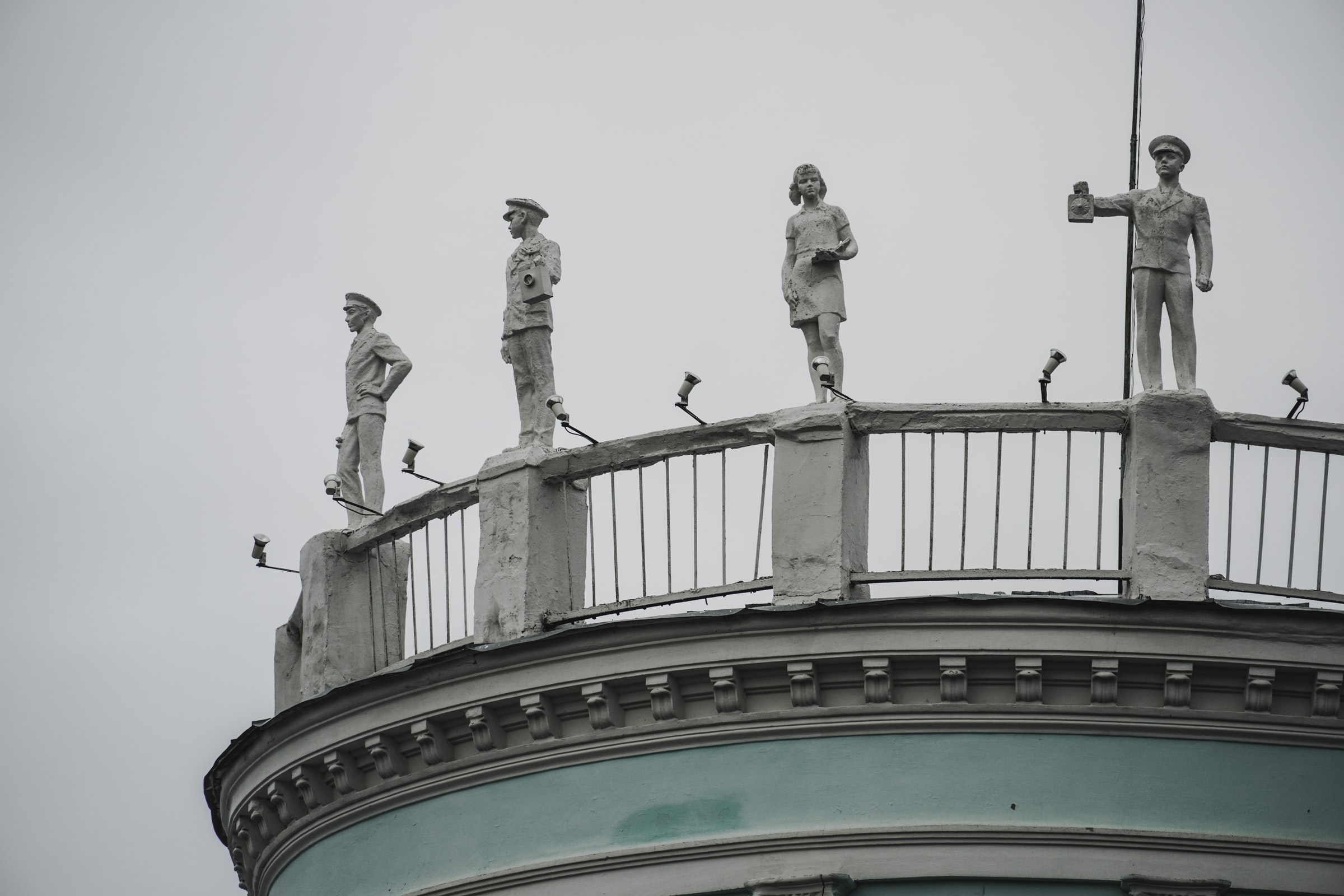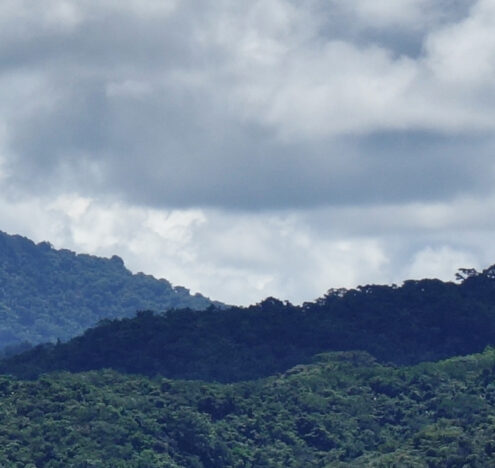I have never heard so many people in Moscow talk about a possible nuclear war as I have in the last few weeks. Friends and relatives, who have nothing to do with foreign or security policy, ask me, half worried, half-joking if it makes any sense to plan for even the nearest future because there might not be one.
There are no recent polls conducted in Russia on this issue. However, a study by the governmental pollster WCIOM from September 2021 shows that 49% of Russians are concerned about nuclear war in one way or the other, while only 7% thought it was possible in the coming 2-3 years. I have no doubt that if such a poll were conducted today, both numbers would be higher.
In the United States, nearly 70% of participants of a recent survey by the American Psychological Association said they “are worried the invasion of Ukraine is going to lead to nuclear war. They fear that we are at the beginning stages of World War III.” The UN Secretary-General Antonio Guterres summed it up nicely on Mar. 14, 2022, when he said, “the prospect of nuclear conflict, once unthinkable, is now back within the realm of possibility.”
Since the end of the Cold War, there has never been a situation where nuclear weapons seem possible. It started with a clear warning by President Vladimir Putin on Feb. 24, 2022, the morning of the “special military operation” in Ukraine:*
“I would now like to say something very important for those who may be tempted to interfere in these developments from the outside. No matter who tries to stand in our way or all the more so create threats for our country and our people, they must know that Russia will respond immediately, and the consequences will be such as you have never seen in your entire history.”
Many have seen this warning as a sign of the readiness of the Russian authorities to use nuclear weapons in case any NATO country directly interferes in their military campaign in Ukraine. Putin’s words — “No matter how the events unfold, we are ready. All the necessary decisions in this regard have been taken. I hope that my words will be heard” — raised the stakes to the highest level.
I have never heard so many people in Moscow talk about a possible nuclear war as I have in the last few weeks.
And he followed up with actions. On Feb. 27, 2022 — for the first time since the Cold War — the Russian president put the country’s nuclear deterrence forces on a special mode of combat duty. Putin explained that this action was because “top officials of the leading NATO countries allow aggressive statements against Russia.” But Putin did not provide any more details or examples of the statements he was referring to. A day later, his press-secretary Dmitry Peskov explained that Russia was alarmed by “unacceptable” remarks of the British foreign minister Liz Truss in an interview with Sky News. Yet, he did not specify which of her comments the Kremlin found so unacceptable. She did accuse Russia of lying:
“When I was in Moscow I was assured by Sergey Lavrov that there would be no invasion of Ukraine. That was not true. President Putin said there would be no invasion of Ukraine. That is not true. So what we know is that Russians weren’t and aren’t serious about diplomacy.”
UNDERSTANDING RUSSIA’S NUCLEAR MOVEMENT
The fact that Truss’ remarks were so misinterpreted led many commentators to think that Russia was looking for a reason to justify preparations for a possible first strike. But experts with a deep understanding of the Russian nuclear doctrine and decision-making process, like UN Institute for Disarmament Research’s Pavel Podvig, author of the blog “Russian Strategic Nuclear Forces,” explained that the special mode of the nuclear forces allows Russia to be better prepared should they need to respond to an attack. Nevertheless, the United States and other NATO officials considered the move a “dangerous escalation,” warning that it could have unintended consequences.
Russian officials, in return, accused the West of escalatory rhetoric and actions. On Mar. 3, 2022, in an interview for several TV channels, Foreign Minister Sergey Lavrov recalled: a statement by NATO Secretary-General Jens Stoltenberg, who indicated that nuclear weapons could be deployed in Eastern Europe; remarks by the Ukrainian President Vladimir Zelensky that his country might reconsider the Budapest memorandum; Foreign Minister of France Jean-Yves le Drian’s warning to Moscow that Paris also has a nuclear arsenal; and Truss’ interview. Lavrov reasons that collectively, these remarks had put Russia on high alert. Lavrov said, “Please note also what US President Joseph Biden has said. When asked whether there was any alternative to the current ‘sanctions from hell’ he said World War III was the only alternative to these sanctions.” And “It is commonly understood that World War III means nuclear war.” According to him, the thought of nuclear war is constantly running through the minds of Western politicians but not the minds of Russians. He insisted:
“I assure you that we will not let any provocations cause us to lose our balance. But if a real war is unleashed against us, this must be a concern for those hatching such plans. And I believe these plans are being hatched.”
These statements might well resonate with many Russians. According to a study by the independent Russian pollster “Levada,” published on Apr. 27, 2022, there has been a sharp deterioration in attitudes of Russian citizens toward Western countries in the recent weeks: 72% of the people polled in March 2022 said they have a negative attitude toward the United States, while in February this number was 55%. The same trend can be seen in the attitude of Russians toward European countries: 67% negative in March 2022, compared with 48% in February. And 78% said they have a terrible attitude toward NATO, though this has been consistent over the past few years.
“Recently the strategic potential of our country has been transferred to a special regime so that everyone understands the threats that other states will face if they try to influence the course of our country by military means,” said Deputy Chairman of the Security Council Dmitry Medvedev.
The New York Times reported that the United States includes a nuclear factor in its decision-making. The White House has quietly assembled a team of national security officials to sketch out scenarios of how the United States and its allies should respond if Putin — “frustrated by his lack of progress in Ukraine or determined to warn Western nations against intervening in the war” — unleashes his stockpiles of chemical, biological or nuclear weapons:
“US Officials believe the chances that Mr. Putin will resort to detonating a nuclear weapon are small. But Russia’s steady stream of reminders that it has its arsenal at the ready and could use it in response to anything it perceives as an “existential threat” has put Washington on high alert.”
A month into the “military operation” in Ukraine, another reminder on this topic came from Moscow by Deputy Chairman of the Security Council Dmitry Medvedev, who was also president from 2008 to 2012. On Mar. 26, 2022, in an interview with Ria Novosti and RT, he underscored that “Russia is a nuclear power, the owner of the most powerful stock of nuclear weapons.” Russia does not threaten anyone with its arsenal, he said. But then added: “Recently the strategic potential of our country has been transferred to a special regime so that everyone understands the threats that other states will face if they try to influence the course of our country by military means.” He also hoped that the “hottest heads in Poland and in some other satellite countries” of the United States had cooled down now.
According to Russia’s strategic documents on nuclear deterrence, Medvedev underlined that the country reserves the right to use nuclear weapons in four scenarios, two of which do not require it being attacked by nuclear forces from the outside. One of those is an attack on Russia’s critical infrastructure that will have paralyzed its nuclear deterrent forces. And the second would be an act of aggression committed against Russia and its allies, which jeopardized the country’s existence itself by conventional weapons and forces. He emphasized that there should be no reason to doubt that Russia would be “ready to give a worthy response to any infringement on our country, or on its independence.”
Zelensky commented on these remarks in his video address to the Doha Forum in Qatar: “Russia is deliberately bragging they can destroy with nuclear weapons, not only a certain country but the entire planet.” Podvig states in a recent piece that the situation is not yet at the point where the danger is too close, but it could deteriorate in unpredictable ways. If the Russian and NATO militaries were in direct contact, he warns, the situation could escalate quickly. “This is why the United States and NATO have gone to great lengths to avoid confronting Russia. But some things are much harder to control,” the expert warns.
A broad interpretation of interference in the conflict could lead Russia to attempt to disrupt supplies of certain weapons, potentially resulting in an exchange of conventional strikes against bases and facilities in neighboring countries and in Russia. An exchange of this kind could rapidly escalate further. And then, Podvig continues, there are unknown paths to an escalation that may look innocuous until it is too late. He urges decision-makers, experts, and journalists in the West not to compete with Russia in a nuclear threat competition, as it is likely to have an advantage in that contest.
IS RESTRAINT A POSSIBILITY?
Interestingly, not so long ago, Russia called upon the P5 countries — China, France, Russia, the United Kingdom, and the United States — to refrain from nuclear threats. Since 2018, Moscow has called on Washington to reconfirm the famous Gorbachev-Reagan formula that “a nuclear war cannot be won and must never be fought.” Under the Trump administration, the United States ignored this proposal. But at the first (and so far only) summit between Putin and President Joe Biden in June 2021, the two presidents issued a special statement on strategic stability where the formula of 1985 was reaffirmed. Then again, on Jan. 3, 2022, the leaders of the P5 states jointly reiterated that a nuclear war cannot be won and must never be fought. And Russia was one of the most active proponents of this joint statement, which reads: “As nuclear use would have far-reaching consequences, we also affirm that nuclear weapons — for as long as they continue to exist — should serve defensive purposes, deter aggression, and prevent war.”
In an interview with Russia’s Channel One on Apr. 25, 2022, Lavrov confirmed that Moscow is still committed to that principle. At the same time, he added: “The risks are quite high today. I would not like to see them blown out of proportion, but many would love to do it. This threat is serious and real. It must not be underestimated.” According to Lavrov, there were not many written rules during the Cuban Missile Crisis, but the rules of conduct were quite clear. “Moscow understood how Washington was acting, while Washington understood Moscow’s behavior. Today, few rules remain,” he noted.
The threat of a nuclear war, therefore, is very real. In an interview on May 5, 2022, Dmitry Trenin, the former director of the Carnegie Center in Moscow, said that “a real fear of nuclear weapons appeared after all, it was not present for a long time after the end of the Cold War.” So, when my friends ask me about the risk of a nuclear war, I tell them about the statement of the P5. After all, if its signatories were not sincere and a catastrophe happened, there would not be too much time to lament this.
*I am writing this text from Russia, where a new “anti-fake” law prohibits people from calling the events in Ukraine what they are.
This piece is published in collaboration with Outrider Foundation, a nonprofit media group that publishes commentary on security issues, public policy, and social justice.
For the Spanish translation, see here.





















